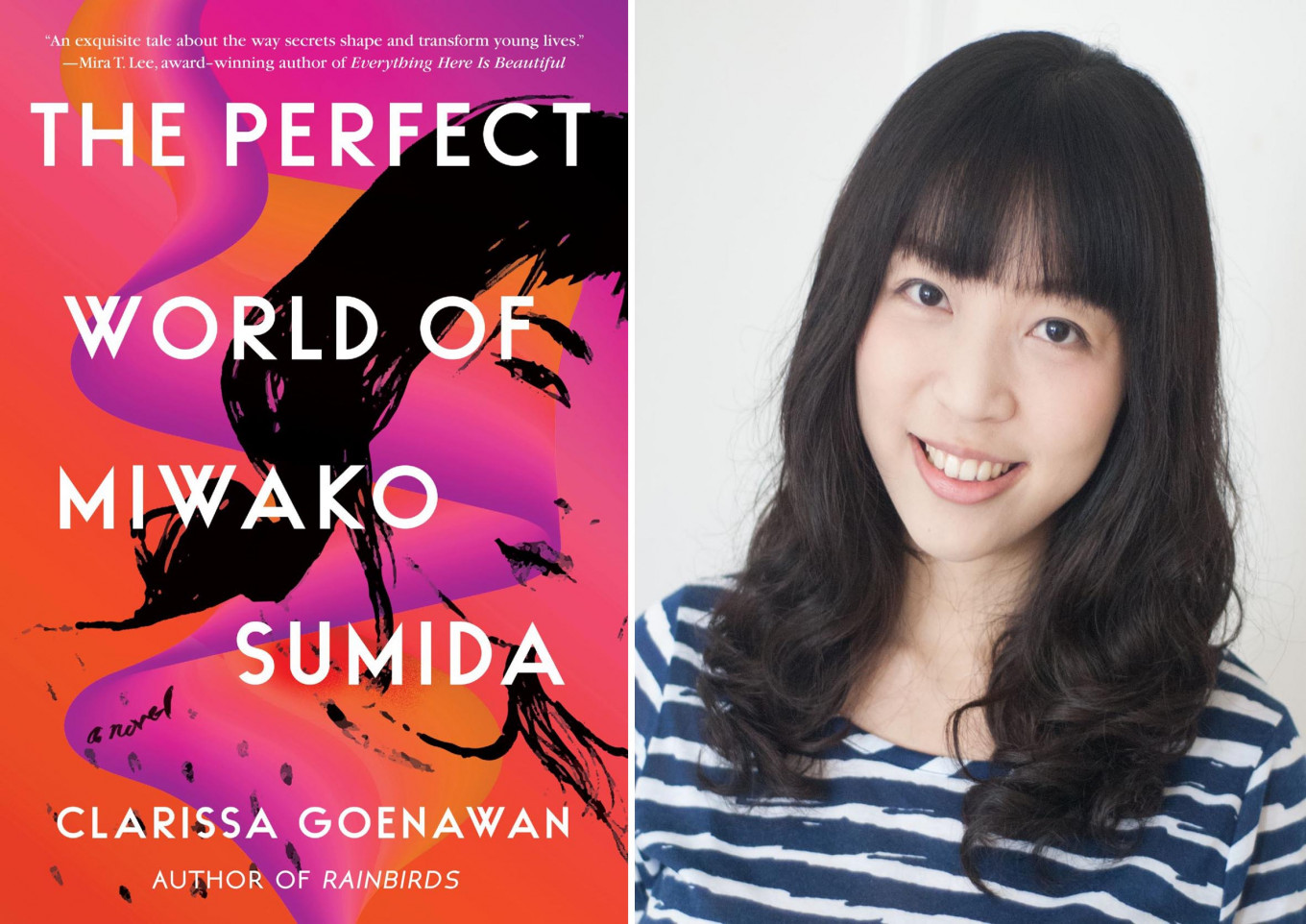Clarissa Goenawan pens tale of teenage misfits’ gothic soul-searching
In her second novel, author Clarissa Goenawan uses exciting literary techniques, like combining elements of surrealism and horror, to make for a satisfying reading experience
Change Size
 Soul-searching: The second novel by Indonesian-born Singaporean author Clarissa Goenawan (right), titled "The Perfect World of Miwako Sumida", is scheduled to be released on March 10. (Courtesy of Clarissa Goenawan /-)
Soul-searching: The second novel by Indonesian-born Singaporean author Clarissa Goenawan (right), titled "The Perfect World of Miwako Sumida", is scheduled to be released on March 10. (Courtesy of Clarissa Goenawan /-)
M
ainstream stories about popular teenagers can be a little bit boring sometimes, since their lives are kind of predictable and go smoothly most of the time.
What is not so predictable is the second novel of Indonesian-born Singaporean author Clarissa Goenawan, The Perfect World of Miwako Sumida, which is scheduled to be released on March 10 via SoHo Press. It follows the lives of Ryusei (male) and Chie (female), two invisible, perhaps even ill-fitting teenage university students as they try to make sense of the suicide of their close friend Miwako Sumida.
Set in 1989 in Japan, the story is told using a double plot structure, with the two friends finding themselves going on a soul-searching journey as they try to gain clues as to what drove Sumida to take her own life in a remote mountainside village.
Before her death, the three teenagers are bound together by their painful family histories, prominently marked by the losses of their parents at an early age.
The friendship circle expands when Sumida gets closer to Ryusei’s older sister Fumiko – the only adult in the group – as Sumida, who lost her father at an early age, can relate to Ryusei and Fumi’s experience of being orphaned after their parents died in a fatal car crash.
Deprived of the nurturing of a loving parental figure, the story vividly portrays the four people’s difficulties in forming secure emotional and social lives as they grow older.
Although they are relatively functional at their university (and in Fumi’s case, work), they find it difficult to relate to and trust others as they attempt to navigate their complex feelings.
These intellectually functional but troubled teenagers gravitate toward each other and find a sense of solidarity, until Sumida’s tragic death comes, undoing all the moments of joy. Left behind is a female cat named Tama (meaning “jewel” in Japanese) for Ryusei to take care of.
The main premise seeks to remind us that life is messy, unlike the idealistic portrayals of happiness we often get from Hollywood films or luxury lifestyle magazines. The author embraces this message with the ironic title The Perfect World of Miwako Sumida.
Yes, despite not having many friends and not being the typical girl in university, Sumida is looked upon as perfect among her friends, as someone who is so comfortable with herself that she can speak her mind bluntly at any time.
As readers flip through the pages of the story, they will revisit and reconnect with their inner lives as they travel with the friends who survived Sumida to unravel the dark niches of her psyche, layer by layer. As we examine the pain of Sumida and her friends, we will, without escape, examine ours as well.
No need to worry, though, as the inward journey to examine our past wounds through the novel need not always be achingly painful.
Thanks to Clarissa’s literary skills, she also equips us with the much-needed balms as we go on this journey. She oftentimes uses humor – very dark but humor that will tickle your funny bones nonetheless – as well as cultural references full of imagination.
For instance, she mentions a confessional-style local magazine that allows readers to submit excerpts of their own diaries under pseudonyms, resulting in a rat race among writers, some of whom are teenage girls who seek to gain attention by publishing the lurid stories of their fantastic sex lives.
Clarissa does not present this story for shock value only. By describing the lives of the magazine’s writers, she also raises an age-old question on the fine line where literature ends and life begins. But the magazine's confessionals can also describe the power of literature as an escape route for those who have difficulties in articulating their emotional states in an everyday life setting.
Also, she uses other exciting literary techniques, like combining elements of surrealism and horror, to make for a satisfying reading experience, and to make the examination of pain less painful. Her storytelling techniques allow us to fantasize about acting in some kind of a gothic film as we delve deeper into our inner lives through the characters.
Clarissa has said that she is heavily influenced by Japanese authors, most prominently Haruki Murakami, whose 1987 novel Norwegian Wood helped her rediscover the magic of literary fiction following years of being too busy to pick up a book due to her work at a Singaporean bank.
Thus, many reviewers have compared her style to Murakami’s and, quite honestly, this novel is reminiscent of elements of his novels, especially his 2002 work Kafka on the Shore, with references of a cat, getting lost in a forest, loneliness and horrific, if not painful sexual tales.
Yet, to avoid making facile comparisons here, it is also fair to say that Clarissa has her own distinctive voice, as she sensitively explores traumatic sexual experiences through a woman’s perspective.
All in all, read this novel, as you will start to find yourself caring about the lives of the relatable main characters, whose destinies might as well reflect yours; or all of us really. After all, life is messy and literary works can offer us some remedy. (ste)









